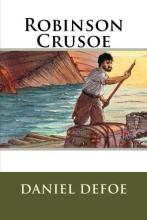
The other day, I quoted from Daniel Defoe's novel, Robinson Crusoe, in this its 300th anniversary year.
Here's another excerpt that illustrates the topic of the "bondage of the will". This is the idea, in theology, that humans who sin but are not born again both freely choose to sin and are unable to choose otherwise. My free choice to do as I wish does not mean I could have chosen otherwise, because sin has an irresistible attraction to me. But, on the other hand, the fact I could not do otherwise does not let me off the hook, because at no point does anyone make me do something I do not want to do.
Having had a number of near disasters at sea, Crusoe embarks from Brazil on another trip to west Africa. This is the one that ends, for the short-term (read the book for the long-term results) in disaster. Now ask yourself why he set sail:
"But I that was born to be my own destroyer could no more resist the offer than I could restrain my first rambling designs, when my father's good counsel was lost upon me. In a word, I told them I would go with all my heart if they would undertake to look after my plantation in my absence and would dispose of it to as I should direct, if I miscarried. This they all engaged to do."
He went because he wanted to do so with all his heart. He could not resist.
Recent comments